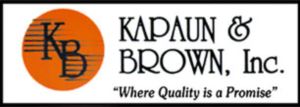
Have you ever performed a double take when you took a look at your last energy bill? Although high energy bills can be the consequence of extreme weather conditions, consistently high bills can quickly indicate an inefficient HVAC system or your home is misusing energy through other means, such as drafty windows or inadequate insulation.
One of the simplest ways to figure out whether your home is consuming too much energy is by getting a home service professional to perform a home energy audit, also referred to as a home energy assessment. Keep reading to learn more about home energy audits, including what they are and their advantages.
What Is a Home Energy Audit?
An energy audit is a thorough inspection of how much energy your home uses up and whether – and where – your home could be losing or wasting energy. An inspector will take a look at past energy bills in the course of an energy audit to figure out where energy is being wasted and how much.
The overall goal of an energy audit is to help homeowners save money on their energy bills by suggesting energy-efficient renovations, which may include replacing your existing HVAC system, putting in new insulation, closing up leaks, or replacing loose windows.
During the energy assessment, the auditor performs an inspection of the outside and inside of your home. The auditor will perform a blower door test on doorways, windows and fireplaces to find out if there are air leaks in your home. They’ll also inspect your home’s HVAC system, including the ductwork, the water heater, and the insulation in your attic. Some assessments could also include inspecting your current lighting system.
Benefits of a Home Energy Audit
It can be hard for the typical homeowner to know for certain how efficient their home is compared to other similar homes in their neighborhood. However, local energy companies often supply information about where your home stands in comparison to similar homes and whether it’s more efficient, about average, or inefficient in contrast with your neighbors’ homes. This is a great starting point to figure out if you need an energy audit performed.
Some of the benefits of a home energy audit include:
Learning How Efficient Your Home Is
It’s beneficial to understand how efficient your home is and where you’re using up the most energy. For example, if your ducts are leaking, it could result in a large increase in your energy bills and increased wear and tear on your HVAC system because it has to stay on longer to completely heat or cool your home.
Making Energy-Efficient Upgrades
An energy audit should expose where you need to make energy-efficient improvements to save on energy and lower utility bills. This may include replacing worn-down weatherstripping or buying a new energy-efficient furnace.
Enhancing Health and Safety
Allowing air to slip into your home through doors and windows, or because of a lack of insulation can cause extra moisture to build up, which may negatively affect your home’s humidity levels or encourage mold. This can lead to health conditions, especially for people suffering from asthma or allergies.
Raising Your Home’s Retail Value
Energy-efficient homes are preferred by homebuyers. You can sell your home much faster or for more money by telling possible buyers that it’s energy efficient.
How to Do an Energy Audit of Your Home
Although completing an energy audit on your own may not be as comprehensive as hiring a professional, it’ll offer a general understanding of how energy efficient your home is. If you don’t discover any flaws during the DIY test, then you probably don’t need to call in a professional. Use this step-by-step checklist:
- Review your HVAC system. Broken ducts can lose nearly 20% of conditioned air, contributing to more expensive energy bills and increased strain on HVAC equipment. If you find leaks, use duct tape to seal them. If your HVAC equipment is old and wearing down, upgrading to a new system can save you a substantial amount on your energy bills. In some cases, it is better to contact a reputable HVAC company to inspect your system.
- Watch for signs of air leaks. Air leaks on average can raise the energy bills by 10 to 20%. Inside, look for air leaks in areas where there could be a draft, like along the edge of flooring and near baseboards and electrical outlets. Outside, you can inspect for air leaks along the home’s foundation, siding and mortar. Plug, caulk or seal any air leaks to save money.
- Inspect insulation. If your home is older, it could mean your insulation is too. If you can see the joists, you likely need more insulation.
- Check the ventilation. Ensure that all of your kitchen and bathroom exhaust fans are working properly, and inspect for evidence of rot or moisture.
Contact Kapaun & Brown for a Professional Energy Audit
If you would like professional help figuring out how energy efficient your heating and cooling equipment is, call the HVAC pros at Kapaun & Brown today. We’ve proudly supported the residents of Marshalltown with quality home services for years. Contact us today to set up an appointment.
